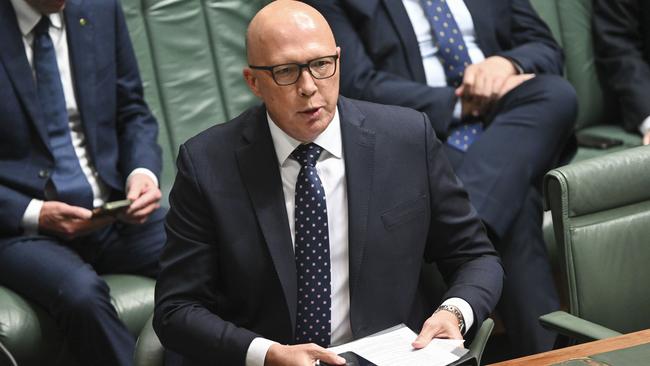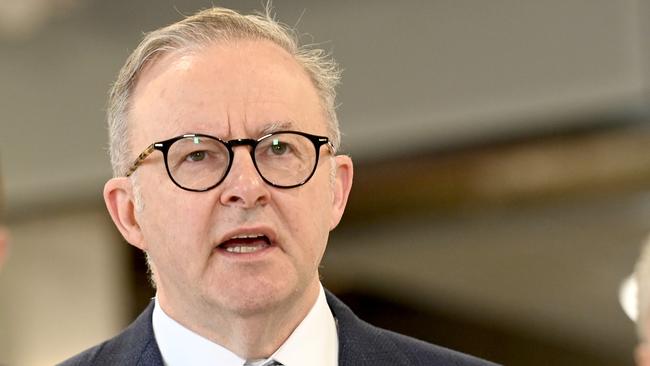
The 1789 French Revolution is the best known example but in Australia, the 1975 election, which saw the Coalition under Malcolm Fraser win more than 80 seats was arguably our best illustration of a “French Revolution” via democracy.
The remarkable circumstances of 2023 are eerily like 1975 if you ignore the 1975 events involving the Governor General which, while of great national significance, became a historical smokescreen for the economics of the day.
I doubt whether anyone in the Albanese government has equated what is happening in 2023 Australia with the 1975 economic situation that triggered the huge political swing that swept the Whitlam government out of office.
Ironically in the final months of the Whitlam administration Gough started to make the changes required but it was too late.
The Albanese government is lucky because the voting patterns in the voice referendum provide a unique political warning that was not available for Whitlam
Earlier this week John Dahlsen and I put together a series showing how the current federal state and local government actions are a major contributor to the cost of living and inflation rising to dangerous levels. Now the Reserve Bank governor Michele Bullock is warning that exploding wages mean that the lower inflationary trends we are seeing elsewhere in the world may bypass Australia.
Because higher interest rates are the main anti-inflationary weapon, in Australia the burden of reducing inflation is shouldered by about 30 per cent of the population while the remaining 70 per cent live their lives basically unaffected and often prosper.
The government embraces policies that may please the 70 percent but boost inflation and compound the suffering of the 30 per cent.

Just as the Governor General events were an economic smokescreen so, in a strange way, the issues in the voice referendum are arguably a side issue to the suffering of the 30 per cent. But in vast areas of Australia there is empathy with this suffering.
Although we don’t have an electorate income division for October 2023, earlier Morgan research shows that ten of the highest 21 yes voting electorates were among the top 20 highest income earning electorates.
The rich of Australia voted yes and I would argue that their wealth meant that they believed they were not going to be impacted by the likely Aboriginal and Torres Strait agendas.
Indeed their wealth enables them to ignore the suffering that is taking place elsewhere and in some electorates experiment with very socially-oriented and non-economic agenda politicians like the Teals.
These electorate islands of extreme wealth in areas like Melbourne and Sydney are surrounded first by capital city and inner city former blue ribbon ALP electorates that are now also very focused on non-economic agendas like the environment, gender, colonialisation and similar issues.
The combination of extreme wealth and these socially-oriented electorates dominated the yes vote. The rest of the country voted no.
Most of Australia’s top political analysts quite reasonably conclude that the issues in the voice campaign won’t necessarily translate to political outcomes in the 2025 election.
I’m not politically skilled enough to debate those conclusions but in my world – leaving aside rural electorates – those who were being hit by high interest rates and rent stress, plus their friends and acquaintances, just happened to be the voters who emphatically said no to awarding one group in the population greater power while there was suffering elsewhere.
In the election campaign of 1975 Malcolm Fraser targeted those people who were suffering from the recession of the early 1970s that was initially brought on by forces like the sharp oil price increases that were outside the control of Gough Whitlam.
Similarly, our inflation is part of a world phenomenon but we have embraced policies such as high spending, costly energy, record migration and shocking housing policies which have triggered a huge reduction in real disposable income for people outside the elite areas.
Via higher interest rates we have then required 30 per cent of population to suffer the burden of trying to control inflation and the cost of living. The Gottliebsen-Dahlsen series showed there were clear non interest rate strategies available to spread the burden but they would not be popular in the high income socially oriented electorates that happened to vote “Yes” .
Whether Peter Dutton has the 1975 election winning skills of Malcolm Fraser to harness the anger in so much of Australia remains to be seen.
And, of course, when he came to power Malcolm Fraser did not convert his electoral policy to real results.
In due course he was thrown out by Bob Hawke who became one of Australia’s great prime ministers aided by Paul Keating who actually became a junior minister in the final weeks of the Whitlam government.







History is studded with the collapse of ruling societies that allowed the rich to prosper while the poor to suffered misery.